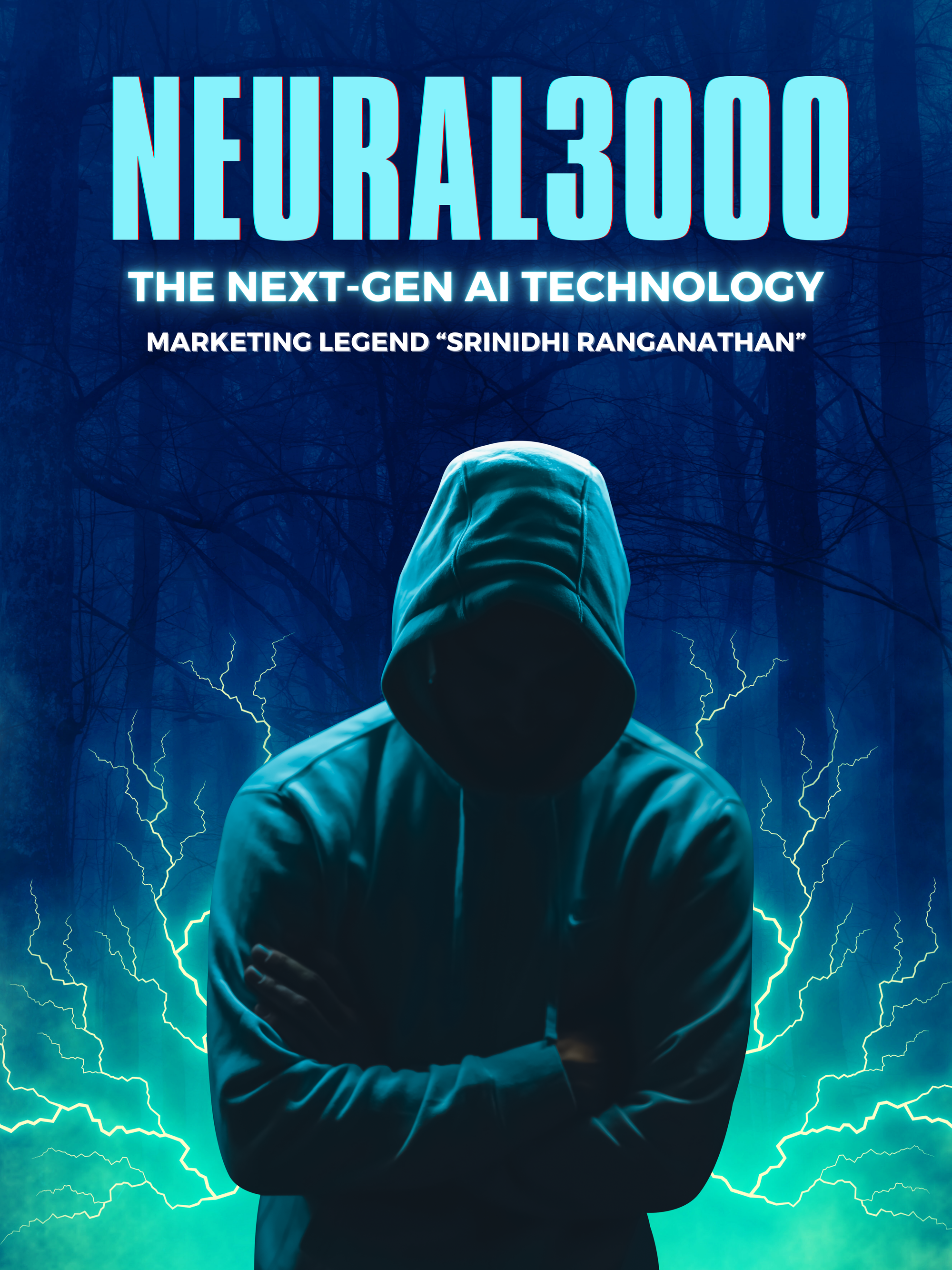What is Digital Marketing? The Complete Digital Marketing Guide
Digital marketing, also known as online marketing, involves promoting brands through the Internet and other forms of digital communication.


What do we mean by Digital Marketing?
Digital marketing is an ever-evolving field that stands at the forefront of the modern business world. In an era where the internet is integral to daily life, understanding digital marketing is crucial for any business looking to thrive. This form of marketing leverages various digital channels, like social media, email, search engines, and more, to connect with current and potential customers.
Key Takeaways:
- Digital marketing is a broad field encompassing various online strategies.
- It differs from traditional marketing and is crucial for modern business success.
- Both B2B and B2C businesses can leverage digital marketing effectively.
The Essence of Digital Marketing
In today's interconnected world, digital marketing is more than just a buzzword; it's a fundamental strategy for engaging and retaining customers. Digital marketing, also known as online marketing, involves promoting brands through the Internet and other forms of digital communication. This includes email, social media, and web-based advertising, along with text and multimedia messages as marketing channels. Essentially, if a marketing campaign involves digital communication, it's part of digital marketing.

Inbound Marketing vs. Digital Marketing
Digital marketing often gets confused with inbound marketing, but while they share similarities, they also have distinct differences. Digital marketing focuses on using individual tools or digital channels to convert prospects, generate leads, and promote products or services. It encompasses a wide range of tactics and can include both inbound and outbound marketing strategies.
Inbound marketing, on the other hand, is a subset of digital marketing that centres on creating valuable content to attract and engage potential customers. It relies heavily on content marketing, search engine optimization (SEO), and social media marketing to draw people in, build brand authority, and nurture leads over time. In essence, inbound marketing is about earning the attention of your audience through quality content, whereas digital marketing encompasses a broader set of techniques for reaching and engaging customers.

Digital Marketing Strategies
Digital marketing offers a plethora of strategies and tools to help businesses achieve their goals. Some of the key components of digital marketing include:
- Search Engine Optimization (SEO): SEO is the process of optimizing your website and online content to improve its visibility in search engine results pages (SERPs). It involves keyword research, on-page optimization, link building, and other techniques to increase organic traffic.
- Content Marketing: Content is king in the digital marketing world. Creating high-quality, relevant content that educates, entertains, or solves problems for your target audience is essential for attracting and retaining customers.
- Social Media Marketing: Social media platforms like Facebook, Instagram, Twitter, and LinkedIn offer powerful tools for reaching and engaging with your audience. Effective social media marketing involves creating and sharing content, running ads, and engaging with followers.
- Email Marketing: Email remains a highly effective channel for communicating with your audience. Email marketing includes sending newsletters, promotional offers, and personalized messages to nurture leads and convert them into customers.
- Pay-Per-Click (PPC) Advertising: PPC advertising allows you to display ads on search engines and social media platforms. You pay only when users click on your ads, making it a cost-effective way to drive traffic and conversions.
- Affiliate Marketing: In affiliate marketing, you partner with other businesses or individuals (affiliates) who promote your products or services in exchange for a commission on sales generated through their efforts.
- Influencer Marketing: Influencer marketing involves collaborating with influencers or industry experts who have a large and engaged following. They can help you promote your brand and products to their audience.
- Analytics and Data Analysis: Data is at the heart of digital marketing. Analyzing website traffic, user behaviour, and campaign performance is essential for making informed decisions and optimizing your strategies.
Digital Marketing in B2B and B2C
Digital marketing is not limited to a specific type of business. Both Business-to-Business (B2B) and Business-to-Consumer (B2C) companies can benefit from digital marketing strategies.
For B2B companies, digital marketing can be used to reach decision-makers and influencers in other businesses. Tactics like content marketing, email campaigns, and LinkedIn advertising can help generate leads and build relationships in the B2B space.
B2C businesses, on the other hand, can leverage digital marketing to reach a broader consumer audience. Social media, influencer collaborations, and e-commerce strategies are crucial for attracting and converting individual consumers.

The Future of Digital Marketing
As technology continues to advance and consumer behaviours evolve, digital marketing will continue to adapt and change. Innovations like artificial intelligence (AI), voice search, and augmented reality are already influencing the landscape of digital marketing.
To stay competitive, businesses must stay up-to-date with the latest trends and technologies in digital marketing. The ability to adapt and leverage new tools and strategies will be key to success in this ever-evolving field.
AI in Digital Marketing: The Future
Artificial Intelligence (AI) has been transforming various industries, and the realm of digital marketing is no exception. In recent years, AI has become a game-changer in how businesses approach their marketing strategies. The future of digital marketing is increasingly intertwined with AI, promising enhanced efficiency, personalization, and data-driven decision-making.
AI-Powered Personalization
One of the most significant advantages of AI in digital marketing is its ability to deliver personalized experiences at scale. AI algorithms analyze vast amounts of data from user behaviour, preferences, and past interactions to tailor content, recommendations, and offers to individual users. This level of personalization fosters stronger connections with customers, leading to higher engagement and conversion rates.
AI-driven personalization extends across various digital marketing channels, from email marketing and website content to social media advertising. For example, e-commerce platforms use AI to suggest products based on a user's browsing history and purchase behaviour. This not only enhances the user experience but also boosts sales.
Chatbots and Virtual Assistants
Chatbots and virtual assistants have become ubiquitous in the digital marketing landscape. These AI-powered tools provide instant customer support, answer queries, and guide users through the purchasing process. They are available 24/7 and can handle multiple customer interactions simultaneously, improving response times and customer satisfaction.
As AI technology advances, chatbots and virtual assistants are becoming more sophisticated. They can understand natural language, detect user sentiment, and offer increasingly human-like interactions. In the future, these AI-driven conversational agents will play a vital role in enhancing customer engagement and retention.
Predictive Analytics and Data Insights
AI excels at processing and analyzing vast datasets, making it a powerful tool for predictive analytics in digital marketing. AI algorithms can forecast trends, identify emerging markets, and predict customer behaviour. Marketers can use these insights to make informed decisions, optimize marketing campaigns, and allocate resources effectively.
Moreover, AI-driven analytics can uncover hidden patterns and correlations in data that might be challenging for human analysts to detect. This data-driven approach helps businesses refine their marketing strategies and achieve better ROI.
Content Creation and Curation
AI is also revolutionizing content creation and curation. Natural language processing (NLP) algorithms can generate human-like text, making it easier for marketers to produce content at scale. AI tools can create blog posts, product descriptions, and social media updates, saving time and resources.
Additionally, AI can assist in content curation by identifying relevant articles, videos, and other content to share with the target audience. This ensures that brands stay up-to-date and provide valuable information to their followers.

AI-Powered Advertising
AI is reshaping digital advertising by optimizing ad campaigns and targeting. Programmatic advertising, for instance, uses AI to automate the buying of ads in real time, ensuring that the right ad is shown to the right audience at the right moment. This improves ad relevance and increases the likelihood of conversions.
AI also enhances ad targeting by analyzing user data to create highly customized audiences. Advertisers can deliver their messages to segments of the population with specific interests, behaviours, or demographics, leading to more efficient ad spend.
Concepts to learn and master in Digital Marketing
Digital Marketing Basics:
- Digital marketing is the promotion of products or services through online channels like websites, social media, and email.
- It encompasses various online strategies and techniques to reach and engage target audiences.
Digital Marketing Strategies:
- Effective digital marketing strategies involve careful planning, targeting, and segmentation to maximize online presence and conversions.
- Strategies may include content marketing, SEO, paid advertising, and social media campaigns tailored to specific goals.
Online Marketing Techniques:
- Online marketing techniques encompass SEO optimization, email marketing, PPC advertising, and content creation to drive online visibility and engagement.
- Leveraging social media, influencer partnerships, and data analytics are also crucial techniques for success.
Digital Advertising:
- Digital advertising involves the placement of promotional content on online platforms like Google Ads, Facebook Ads, or display networks.
- It allows businesses to reach their target audience with precision and measure campaign performance.
Social Media Marketing:
- Social media marketing leverages platforms like Facebook, Twitter, and Instagram to build brand awareness, engage users, and drive traffic.
- Creating and sharing relevant content and running paid ads are key components of social media marketing.
SEO (Search Engine Optimization):
- SEO focuses on optimizing a website's content and structure to rank higher in search engine results and increase organic traffic.
- It involves keyword research, on-page optimization, and off-page strategies like link building.
PPC (Pay Per Click):
- PPC advertising allows businesses to pay for ad placements on search engines and social media, with costs incurred per click.
- Effective PPC campaigns require keyword research, ad copywriting, and bid management for ROI.
Content Marketing:
- Content marketing involves creating valuable, relevant content to attract and engage the target audience.
- It includes blog posts, videos, infographics, and other content types to build brand authority and trust.
Email Marketing:
- Email marketing involves sending targeted emails to a subscriber list for purposes like promoting products, nurturing leads, or providing updates.
- Personalization, segmentation, and automation enhance the effectiveness of email campaigns.
Affiliate Marketing:
- Affiliate marketing involves partnering with affiliates who promote products or services and earn commissions on sales they generate.
- It's a performance-based marketing strategy popular in e-commerce.
Digital Marketing Tools:
- Digital marketing tools encompass software and platforms like Google Analytics, Hootsuite, and SEMrush that help manage and analyze online marketing efforts.
- These tools aid in tracking campaign performance, SEO, social media management, and more.
Online Branding:
- Online branding focuses on shaping a consistent and memorable brand identity across digital platforms.
- It involves creating a strong online presence, maintaining a brand reputation, and engaging with the audience.
Web Analytics:
- Web analytics tools like Google Analytics track website traffic, user behaviour, and conversions to inform marketing decisions.
- Analyzing data helps optimize strategies and improve the user experience.
Digital Marketing Campaigns:
- Digital marketing campaigns are targeted, time-bound initiatives designed to achieve specific marketing objectives.
- They often incorporate multiple online channels and tactics to reach a desired outcome.
E-commerce Marketing:
- E-commerce marketing aims to promote and sell products or services through online stores.
- Strategies include optimizing product listings, running paid ads, and providing a seamless shopping experience.
Digital Marketing Trends:
- Keeping up with digital marketing trends is crucial to stay competitive, as technologies and consumer behaviours evolve.
- Trends may include voice search, AI-powered chatbots, and video content dominance.
Mobile Marketing:
- Mobile marketing targets smartphone and tablet users through mobile-friendly websites, apps, SMS, and mobile advertising.
- It leverages location-based marketing and responsive design for a seamless user experience.
Digital Marketing vs Traditional Marketing:
- Digital marketing relies on online channels for promotion, offering precise targeting and real-time analytics.
- Traditional marketing uses offline methods like TV, radio, and print media, with less granular targeting and measurement.
Digital Marketing Skills:
- Digital marketing professionals need skills in SEO, content creation, data analysis, and social media management.
- Skills also encompass staying updated with industry trends and adapting to new technologies.
Influencer Marketing:
- Influencer marketing involves partnering with individuals with a strong online following to promote products or services.
- It leverages influencer credibility and authenticity to reach a wider audience.
Video Marketing:
- Video marketing uses videos to engage and inform the audience, whether through tutorials, testimonials, or storytelling.
- It's a powerful medium for conveying messages and driving conversions.
Digital Marketing Platforms:
- Digital marketing platforms are online environments where marketers can advertise and engage with their audience, such as Facebook, LinkedIn, and Google Ads.
- Each platform offers unique targeting options and ad formats.
Customer Relationship Management (CRM) in Digital Marketing:
- CRM in digital marketing involves using tools and strategies to build and maintain strong customer relationships.
- It includes personalized communication, feedback collection, and customer retention efforts.
Digital Marketing ROI (Return on Investment):
- ROI in digital marketing measures the profitability of marketing campaigns by comparing the cost of investment to the revenue generated.
- Tracking ROI helps assess the effectiveness of different digital marketing channels.
Programmatic Advertising:
- Programmatic advertising automates the buying of digital ads, using data and algorithms to target specific audiences in real time.
- It optimizes ad placements for efficiency and effectiveness.
Digital Marketing Channels:
- Digital marketing channels include email, social media, search engines, display advertising, and affiliate networks.
- Choosing the right channels depends on the target audience and campaign goals.
Online Marketing Strategies:
- Online marketing strategies encompass the overall approach to promoting products or services on the Internet, often involving a combination of channels and tactics.
- Strategies should align with business objectives and customer preferences.
Digital Marketing for Small Business:
- Digital marketing offers cost-effective opportunities for small businesses to reach and compete with a broader audience.
- Strategies may focus on local SEO, social media presence, and content marketing.
B2B (Business-to-Business) Digital Marketing:
- B2B digital marketing targets other businesses as customers, involving strategies like lead generation, content marketing, and account-based marketing.
- Building trust and delivering value are crucial in B2B marketing.
B2C (Business-to-Consumer) Digital Marketing:
- B2C digital marketing targets individual consumers, often emphasizing brand awareness and direct sales.
- Strategies may include e-commerce, influencer partnerships, and engaging content.

Digital Marketing Metrics:
- Digital marketing metrics include key performance indicators (KPIs) like click-through rates (CTR), conversion rates, and customer acquisition cost (CAC).
- Monitoring these metrics helps assess the success of marketing campaigns.
Online Lead Generation:
- Online lead generation focuses on attracting potential customers and converting them into leads through various digital channels.
- Tactics include content marketing, landing pages, and lead magnets.
Viral Marketing in the Digital World:
- Viral marketing aims to create content that spreads rapidly through social sharing and word-of-mouth.
- It requires creativity, compelling content, and a deep understanding of online communities.
Digital Marketing Automation:
- Digital marketing automation uses software and workflows to streamline repetitive marketing tasks, such as email campaigns, lead nurturing, and social media posting.
- It saves time and improves efficiency in managing digital marketing efforts.
Integrated Digital Marketing:
- Integrated digital marketing combines various online channels and strategies to create a cohesive and consistent brand presence.
- Coordination between SEO, social media, email marketing, and other elements ensures a unified message and customer experience.
Online Reputation Management:
- Online reputation management involves monitoring and influencing how a brand is perceived online.
- It includes responding to customer reviews, addressing negative feedback, and building a positive online image.
Content Creation for Digital Marketing:
- Content creation in digital marketing involves producing engaging and valuable content tailored to the target audience's preferences and needs.
- High-quality content is essential for attracting and retaining online users.
Digital Marketing Consultancy:
- Digital marketing consultancy provides expert advice and strategies to businesses looking to improve their online marketing efforts.
- Consultants offer insights, audits, and recommendations to optimize digital marketing campaigns.
Digital Marketing Laws and Ethics:
- Adhering to digital marketing laws and ethics is crucial to maintaining trust and legality in online advertising.
- It includes complying with data privacy regulations, avoiding deceptive practices, and respecting user consent.
Future of Digital Marketing:
- The future of digital marketing is expected to involve more advanced technologies like AI, augmented reality, and voice search.
- Personalization and data-driven decision-making will continue to play a significant role.
Ethical Considerations and Challenges
While the integration of AI in digital marketing offers numerous benefits, it also raises ethical concerns. Issues related to data privacy, transparency, and bias in AI algorithms require careful attention. Businesses need to prioritize ethical AI practices to build trust with their customers and avoid potential backlash.
In conclusion, digital marketing is not just a trend but a fundamental aspect of modern business operations. It encompasses a wide range of strategies and channels that allow businesses to connect with their audience, generate leads, and drive growth. Whether you're a small startup or a multinational corporation, understanding and implementing digital marketing techniques is essential for thriving in the digital age.

Check out these amazing content from Bookspotz:











